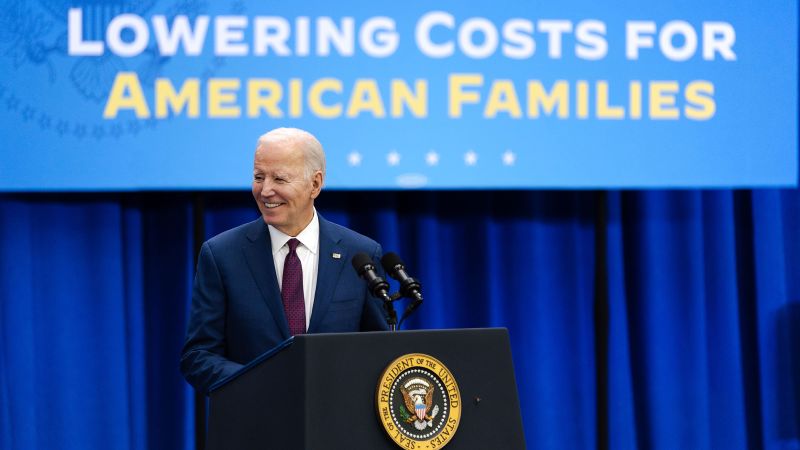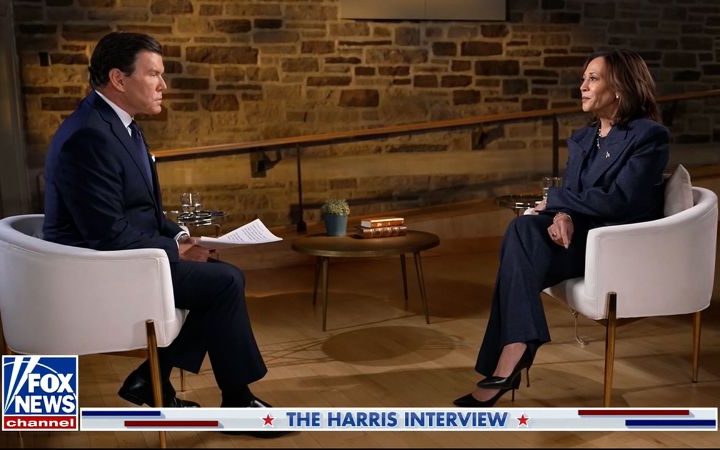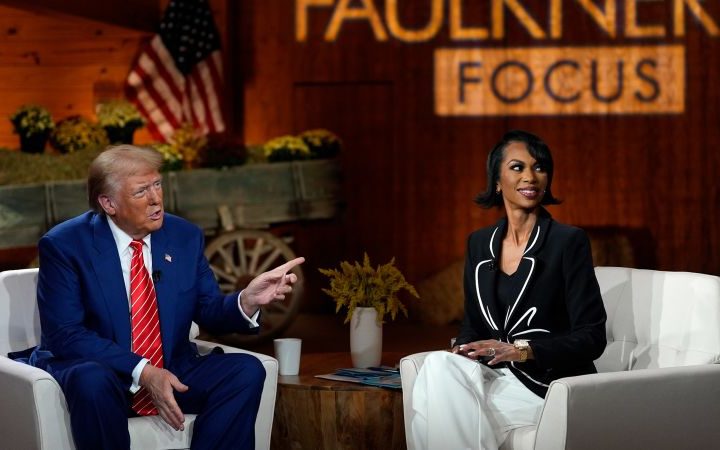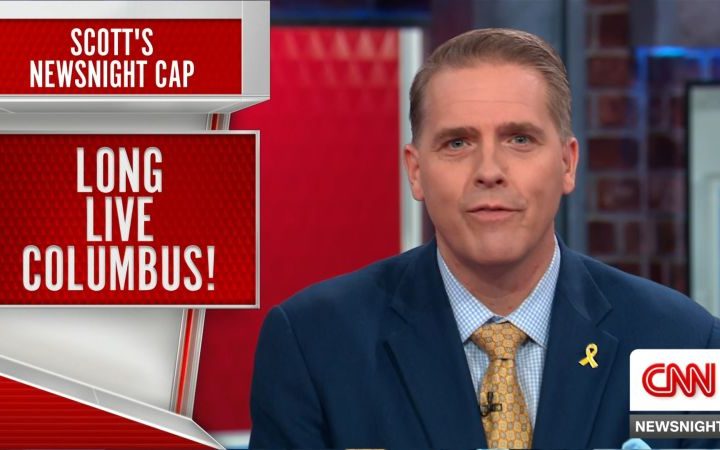As President Joe Biden barnstorms battleground states this week, he is framing the debate with former President Donald Trump around themes of economic populism that Democrats have employed, often with success, for decades. But Trump, the presumptive Republican presidential nominee, may prove to be a more elusive target for those arguments than a typical GOP candidate.
Biden is portraying himself as committed to standing up for average Americans against powerful interests and the wealthy. But polls consistently show that significantly more Americans, including substantial numbers of Black and Hispanic voters, believe they personally benefited from Trump’s policies than Biden’s.
That sentiment risks blunting Biden’s populist arguments: even if he can convince voters that Trump’s policies helped the rich and corporations the most, they may not mind as much if they believe that they also benefited more under Trump than they have under Biden.
For Biden – who spent Tuesday meeting with Teamsters leaders and is headed to Wisconsin and Michigan the next two days – the critical question may be whether voters’ support for key ideas in his policy agenda can outweigh their frustration with their lived economic experience during his presidency. “You are really hitting on the crux of what a lot of swing votes will be [weighing] going into the election,” said Democratic pollster Danielle Deiseroth.
Biden has plenty of ammunition to mount a traditional populist case against Trump. The former president’s principal legislative accomplishment was a massive tax cut that provided most of its direct benefits to corporations and the most affluent. Trump came within one Senate vote of repealing the Affordable Care Act, which has significantly increased health care coverage for lower-income working Americans. As a candidate in 2016, Trump pledged to seek legislative authority for Medicare to negotiate lower prescription drug prices from pharmaceutical companies, but in office, under intense pressure from the industry, he abandoned that promise. Across a wide range of regulatory issues, from the environment to consumer protection, his administration consistently sided with business interests.
Biden has set a very different course. He won the legislative authority for Medicare to negotiate lower drug prices for seniors, and his administration is now negotiating lower prices for the first 10 drugs under that program; he also won authority to limit seniors’ monthly costs for insulin to $35 per month and to cap seniors’ annual out-of-pocket expenses for all drugs at $2,000. He passed significantly larger subsidies to help the uninsured buy coverage under the ACA, which has pushed enrollment to record highs. His administration has enforced the antitrust laws more aggressively than any in recent times and pursued a multi-pronged regulatory offensive against what he calls junk fees. The Covid-19 stimulus bill passed in 2021 included an expansion of the tax credit for families with children big enough to cut childhood poverty roughly in half, though the credit expired when West Virginia Sen. Joe Manchin insisted on its removal in the Inflation Reduction Act. Biden did pass in that law a new 15% minimum tax for corporations.
At the same time, the tax incentives for domestic clean energy manufacturing included in the Inflation Reduction Act and separate legislation promoting more domestic production of semiconductors, as well as the thousands of projects funded under the bipartisan infrastructure bill, have set off a boom in blue-collar employment with nearly 1.6 million jobs created in construction and manufacturing alone since Biden took office, according to administration figures. Biden also became the first president to walk a picket line when he joined the United Auto Workers during its strike against the nation’s three largest automakers.
The new proposals Biden highlighted in his State of the Union last week and new federal budget released Monday also lean heavily into economic populism. “Overall, issues that economic populists have worked for years to put into the political mainstream got validated by President Biden,” said Adam Green, co-founder of the Progressive Change Campaign Committee. Biden is proposing to raise the corporate tax rate, impose a 25% minimum tax on billionaires and end the Trump tax cuts for families earning over $400,000 per year (while retaining them for those making less). He wants to restore the expanded children’s tax credit, make permanent the larger subsidies for buying health insurance, provide a $10,000 tax credit for first-time home buyers, establish a nationwide paid family leave program, and subsidize families’ child care expenses, partly by establishing universal access to preschool. He also called for increasing five-fold annually the number of drugs subject to Medicare negotiations, and to extend the caps on insulin and out-of-pocket drug costs to all Americans, not just seniors.
Biden’s agenda, and the contrast it establishes with Trump’s policy priorities, gives Democrats plenty to work with in trying to portray themselves as champions of average families and Republicans as servants of the wealthy. “Our economic contrast is going to be that of Scranton, Pennsylvania, versus Park Avenue,” said Michael Tyler, the Biden campaign’s communications director. “We have the receipts because we are also running against a de facto incumbent. We saw what his economic policy looked like when he was in office and we have to clearly articulate that to people and remind people of what his priorities are.”
The campaign, for instance, immediately denounced comments Trump made to CNBC Monday in which the former president signaled openness to cutting Medicare and Social Security. (Trump’s camp fired back by noting Biden also supported reductions in the programs to reduce the deficit at various points in his long Senate career.)
But inflation, and its impact on the ability of working families to meet their bills, has greatly complicated Biden’s task in winning a conventional populist argument against Trump. Inflation has significantly moderated from its peak immediately after the Covid pandemic, but while prices are no longer increasing as fast, they remain about 18% higher than when Biden took office, and higher than that for such essentials as groceries, gas and rent. And while wages have been rising faster than prices since spring 2023, the cumulative increase in pay has not yet surpassed the cumulative increase in prices during Biden’s presidency, leaving many workers feeling squeezed. “What’s the disconnect between people’s experience and the [positive] economic movement that we’ve seen in the last four or five months?” asked Republican pollster Micah Roberts. “It’s three words: In-fla-tion. That’s it. It’s not a hard thing.”
Pollsters in both parties say it is common in focus groups to hear participants say that they felt they had more money in their pocket at the end of the week when Trump was president. “Right before Covid, people were telling us it was the best economy they had seen in their lifetime,” said Jim McLaughlin, a pollster for Trump. Now, he says, “They specifically blame Joe Biden for” their increased difficulty making ends meet. “Stand outside a grocery store,” McLaughlin added, “they’ll tell you how booming the economy is.”
Polls leave little doubt Biden today is not only losing the economic comparison to Trump, but facing substantial skepticism among constituencies that usually are the principal target for a populist Democratic economic message. In a CNBC poll last October, not only did White voters say they were better off financially under Trump than Biden by a margin of more than 4-to-1, but so did non-white voters by a margin of nearly 2-to-1, according to figures provided by Roberts, whose firm conducts the survey with a Democratic partner. In the latest national NBC News poll, conducted by the same Republican-Democratic partnership, voters who identified as low-income and working-class trusted Trump over Biden on the economy by a crushing margin of 61% to 25%.
Biden’s problems on the economy are especially acute with Hispanics. In a recent New York Times/Siena College poll, the Hispanic share of voters who said Trump’s policies had helped them personally was more than double the share who said that about Biden’s agenda. In the latest CBS News/YouGov national survey, the share of Hispanics who said the economy was excellent or good under Trump was 20 percentage points higher than the share who said the same about it under Biden. In 2020, Biden won about three-fifths of Hispanics, but in the CBS poll the share of Hispanics who said Trump fights for people like them virtually equaled the percentage that said Biden did. A majority of Hispanics, and even a plurality of Black voters, said Biden’s policies would cause inflation to rise, the survey found.
Roberts said a major part of Biden’s problem on the economy is voters have such a concrete comparison available in their memories of the Trump record before the pandemic.
“I think Trump’s messaging is really simple: we had a policy of creating domestic energy and becoming energy leaders; Biden on day one changed that and look what happened,” Roberts said. “We weren’t spending three trillion dollars on amorphous things that nobody can really put their fingers on. Biden did that, and look what happened to inflation. We had a policy that was strong on the border and immigration. On day one, Biden changed that and look what happened to our border – and by the way, that has economic impact. You can’t not make the contrast and comparison.”
These negative retrospective assessments of the Biden and Trump economic records create huge headwinds for the president. His campaign, and Democrats more broadly, hope to overcome them primarily by stressing their prospective priorities for a second term. “This is not simply a retrospective comparison; this is also a comparison about the competing visions of the future,” Tyler said.
Democrats point out that multiple polls show broad public support for almost all of the key agenda items Biden highlighted in the State of the Union and resistance to many Republican priorities, such as extending tax cuts for the wealthy and corporations or repealing the Affordable Care Act. “Voters—even past Biden voters who disapprove of his economic record—clearly reject what Trump and Republicans are offering,” Democratic pollster Margie Omero said in an email.
In a report released last week, the Winning Jobs Narrative Project, a consortium of liberal advocacy groups, concluded that Democrats’ best chance to overcome voters’ continuing concerns about meeting their bills is to hammer home the populist case Biden sketched out in the State of the Union. By framing the election as a choice between “middle-out” versus “top down” and “trickle down” economics, “we think the president is absolutely on to something central to the direction Democrats should take in this election – which is who gets prioritized and how,” said Bobby Clark, a senior adviser to the group.
After voters were exposed to Biden’s populist arguments, assessments of his economic record improved in the group’s polling, Clark said. But even after hearing that case, most voters in the group’s surveys still gave Biden negative marks for his economic performance, the study found.
That finding may suggest the limits on how much Biden’s prospective agenda can offset voters’ discontent over their actual economic experience during his presidency. To win in November, most strategists in both parties agree, Biden doesn’t need to completely erase Trump’s advantage on the economy because so many voters resist the former president on other grounds, such as democracy, abortion rights, and the general chaos and conflict that he ignites.
Still, Democrats would feel much better about the odds of those other concerns tipping the election in Biden’s favor if he can reduce his deficit on the economy to a more manageable level. To do that, Biden needs positive trends on the economy to persist – in particular, for wages to continue rising faster than prices, as they have since last spring.
But he also needs to persuade enough voters that his agenda will do more than Trump’s to help them make ends meet in the future – even if they mostly believe the opposite has so far been true of Biden’s time in the White House.
Read the full article here







